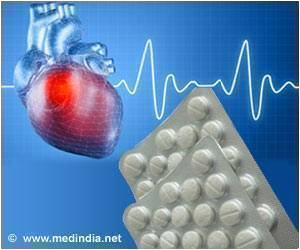Study shows that statin users are likely to survive longer after a cardiac arrest compares to non-users.

- Statins are drugs that can lower your cholesterol.
- Statins are associated with higher rates of survival after cardiac arrest than was non-use.
- Statin users were significantly more likely than non-users to be still alive a year after the episode.
- Within the statin group, a subgroup of patients with Type 2 diabetes showed the most improvement in survival rate.
They work by blocking a substance that the body needs to make cholesterol.
Statins may also help your body reabsorb cholesterol that has built up in plaques on your artery walls, preventing further blockage in your blood vessels and heart attacks.
For patients who have already experienced a heart attack or ischemic stroke, cholesterol-lowering statins are often prescribed to prevent a second cardiovascular event.
The study analyzed the records of nearly 138,000 patients who suffered out-of-hospital-cardiac arrest in the Taiwan National Health Insurance Research Database.
The researchers found that the prior use of statins was associated with higher rates of survival after cardiac arrest than was non-use.
Within the statin group, a subgroup of patients with Type 2 diabetes showed the most improvement in survival rate.
The study also found that use of statins prior cardiac arrest had the following benefits:
- About 19% more likely to survive to reach a hospital
- About 47% more likely to survive long enough to be discharged from hospital
- 50% more likely to survive for at least a year afterwards
- most likely to see a benefit from prior use of statins if they had Type 2 diabetes.
Statins can cause significant side effects (most commonly reported are muscle pain and weakness and increased blood sugar levels), and so the recommendation to use statins for the prevention of a first cardiac arrest or stroke is not clear.
Yu and his colleagues sorted the records according to whether or not the patients had used statins within 90 days of a cardiac event and researchers accounted for gender, age, underlying conditions, years of hospitalization, post-resuscitation factors, and several other variables.
Limitations of the study
More than 95% of the research population in the analysis were Asian, so researchers say these results might not apply to other ethnic groups or to multi-ethnic populations like that of the United States.
The pre-existing database also did not distinguish among different dosages or types of statin.
Researchers hope that in future, they may be to divide the statins into different subgroups to see if different potencies or types result in different outcomes.
References
- Statins:Are these cholesterol=lowering drugs right for you? - (http://www.mayoclinic.org/diseases-conditions/high-blood-cholesterol/in-depth/statins/art-20045772)
Source-Medindia















